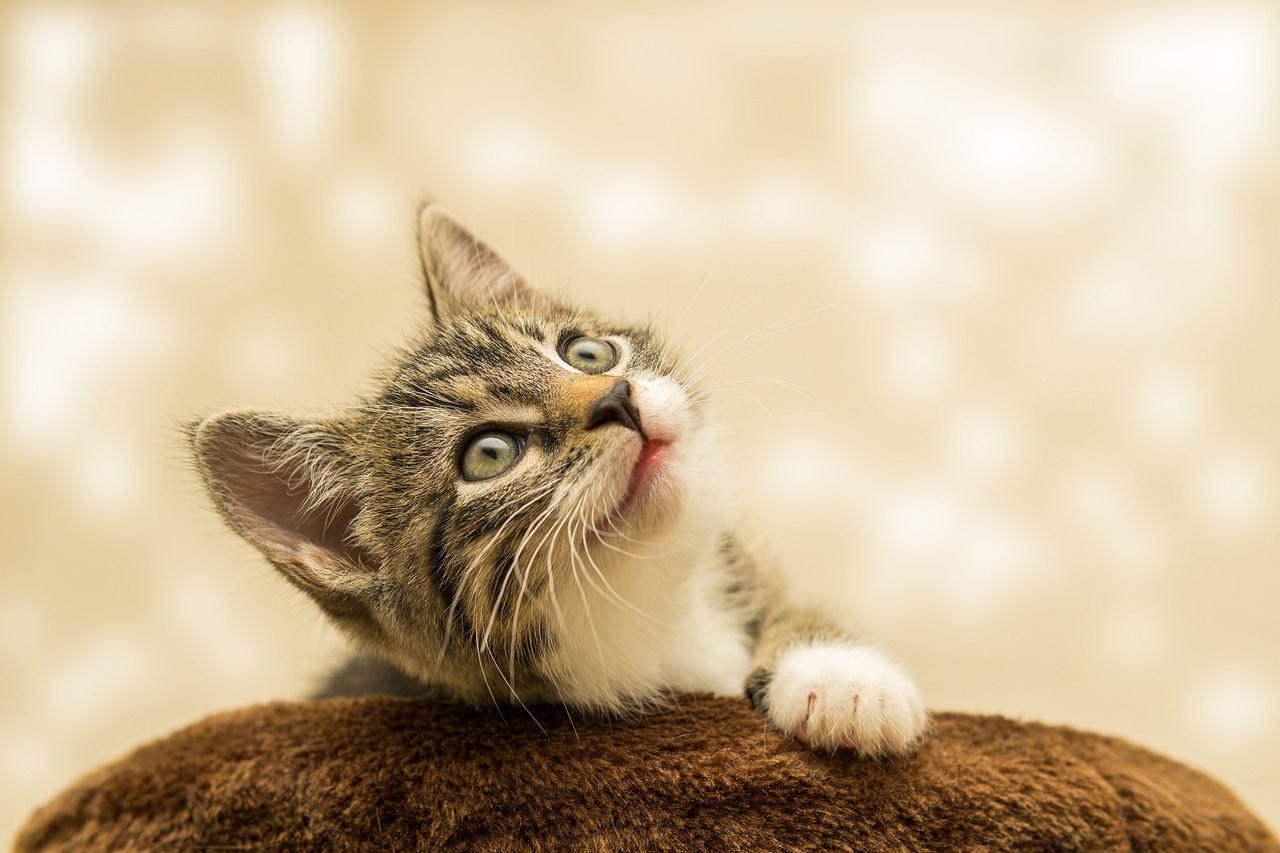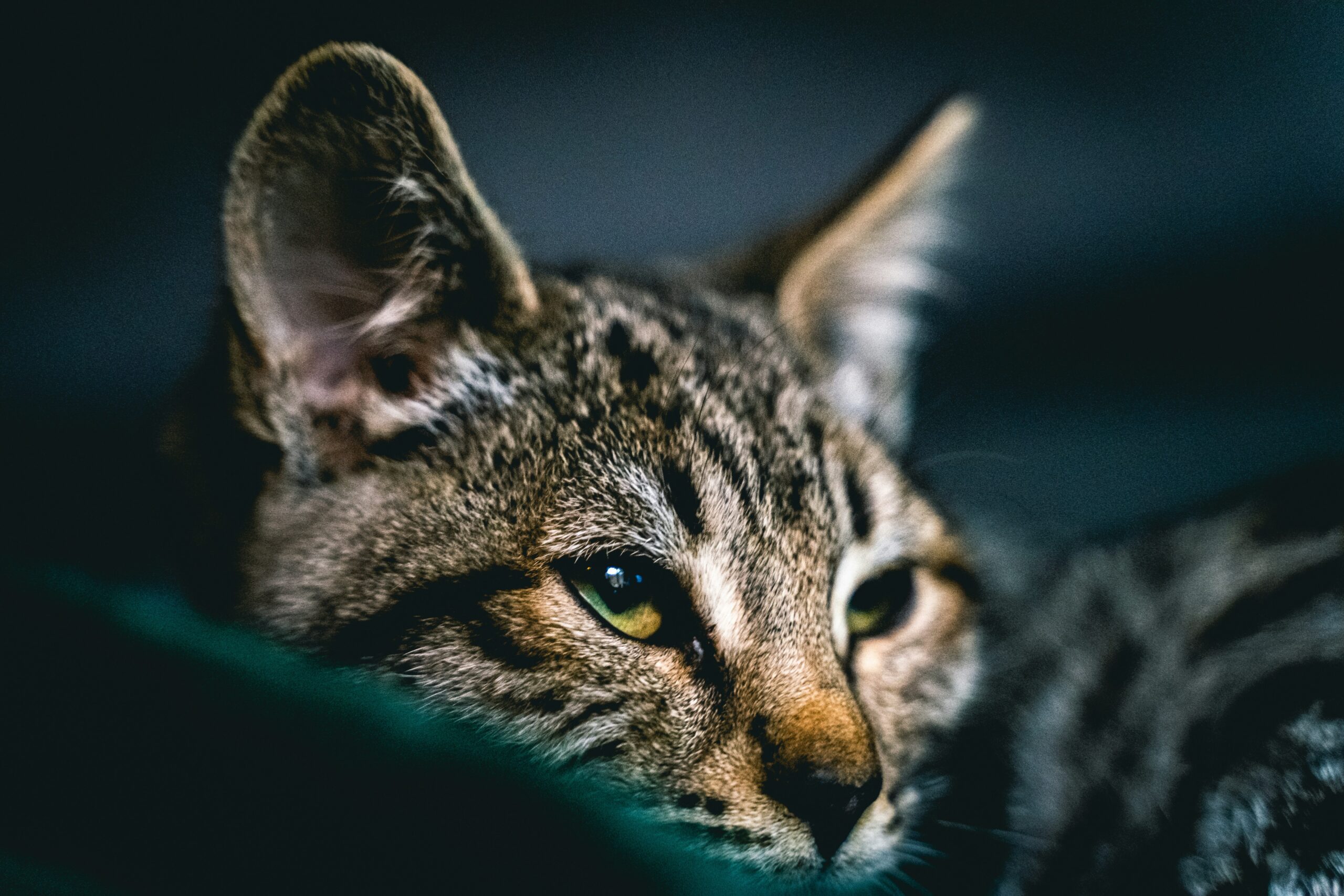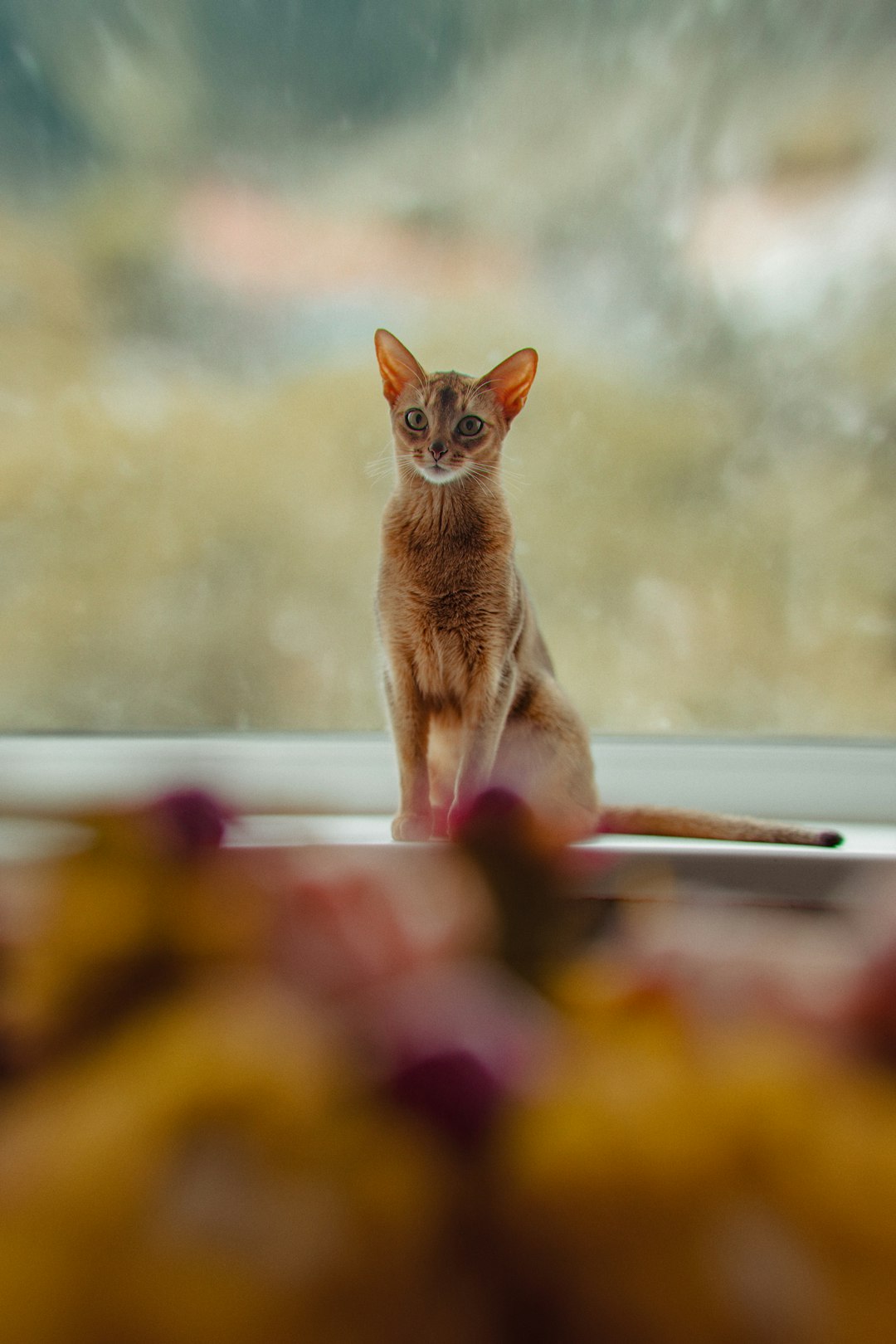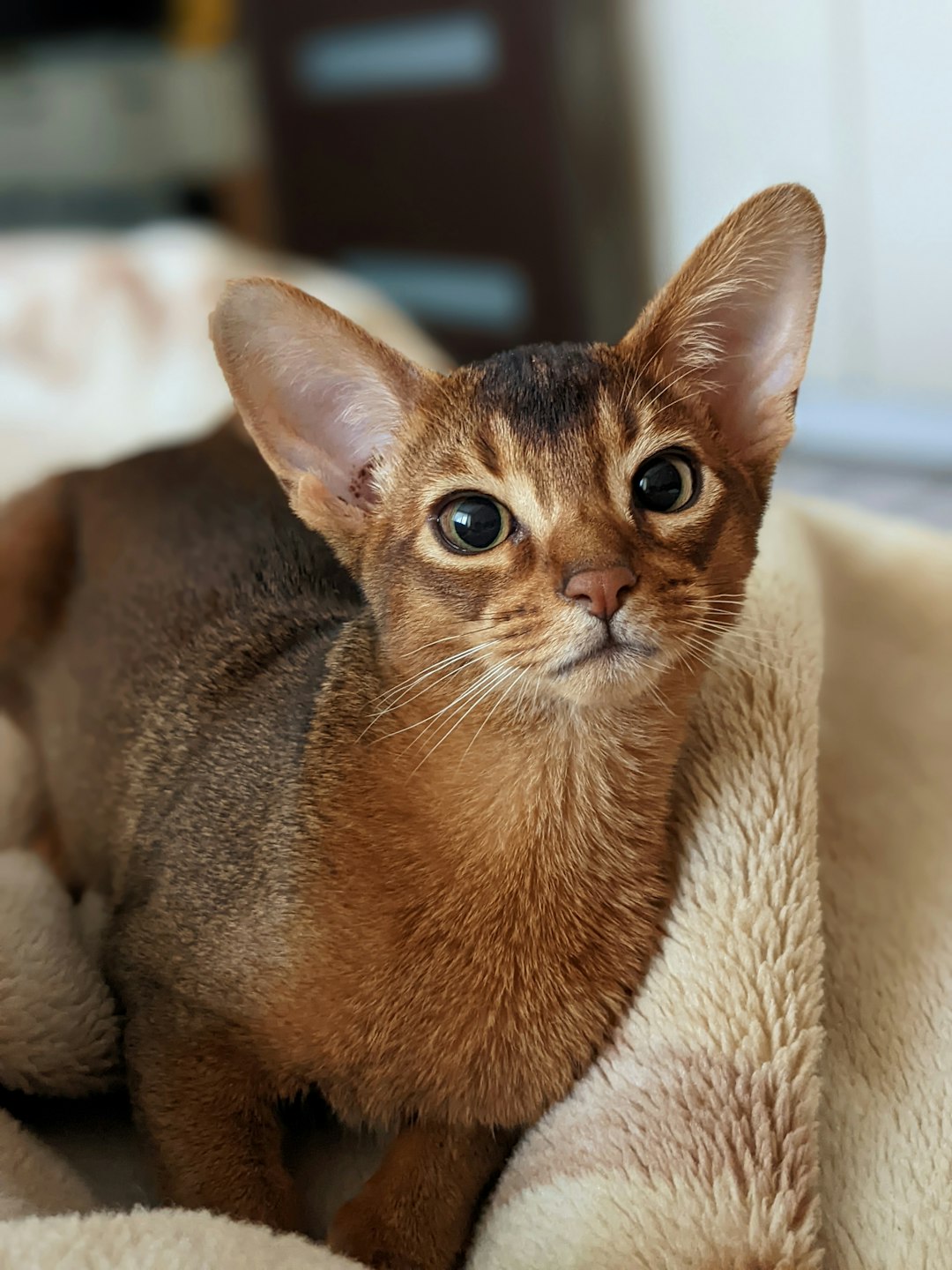The Savannah Cat captivates feline enthusiasts with its striking appearance and wild lineage. This unique breed, originating from a cross between the domestic cat and the serval, showcases a remarkable combination of elegance and untamed spirit. As we delve into the traits that define the Savannah Cat, we uncover its captivating physical characteristics, vibrant personality, and special care requirements, making it an extraordinary companion for those who appreciate the allure of the wild in a domesticated setting.
Origin of the Savannah Cat Breed
The Savannah Cat boasts a fascinating history that begins with an innovative crossbreeding project. This breed originated in the 1980s when a domestic cat paired with a serval, a wild African cat known for its striking appearance and playful nature. The breeding aimed to combine the serval’s exotic traits with the friendly temperament of traditional domestic cats.
Key Historical Points:
- First Generation (F1): The initial offspring produced from these unique pairings are called F1 Savannah Cats. Due to their wild ancestry, these cats exhibit distinct features and behaviors that are reminiscent of their serval lineage.
- Development of the Breed: After the first generation, breeders continued crossing F1 Savannah Cats with domestic breeds. This resulted in various generations (F2, F3, and further), each becoming more domesticated while still retaining some wild characteristics.
- Recognition: The Savannah Cat gained considerable popularity, leading to its recognition by various cat registries, including The International Cat Association (TICA) in 2001. This acknowledgment helped solidify the breed’s status in the feline community.
Why Choose a Savannah Cat?
The blend of serval and domestic traits creates a visually stunning and vibrant companion. As the breed has evolved, enthusiasts now appreciate the Savannah Cat not only for its wild ancestry but also for its warm and engaging personality that makes it a remarkable pet. Its unique origin has set the stage for a breed that truly stands out in the feline world.

Physical Characteristics of Savannah Cats
Savannah Cats are strikingly unique, showcasing a blend of wild and domestic features. Characterized by their exotic appearance, these cats exhibit a range of physical traits that make them stand out:
- Size: Savannah Cats vary in size depending on their generation. They typically weigh between 8 to 25 pounds, with F1 (first generation) being the largest.
- Coat: Their fur is short to medium in length, featuring a smooth, soft texture. The coat displays an array of colors, including:
- Spotted
- Marbled
- Solid
The most common coloration is a golden or tan background with dark spots resembling that of a serval.
- Ears: One of the most distinctive aspects of a Savannah Cat is their large, upright ears, often with tufts on the tips. This gives them a wild feline appearance.
- Eyes: Their eyes are large, oval-shaped, and come in a range of colors, including green, gold, or blue, contributing to their striking looks.
- Tail: The tail of a Savannah Cat is medium in length with a thick base, tapering to a point, which adds to its elegant silhouette.
In summary, the Savannah Cat embodies a unique combination of wild characteristics and domestic charm, making it an alluring companion for those who admire felines with exotic traits.
Behavioral Traits of Savannah Cats
The Savannah Cat breed exhibits a fascinating blend of wild instincts and domestic charm. Understanding these behavioral traits can help you forge a strong bond with your feline companion. Here are some key behaviors to note:
- Curiosity: Savannah Cats are naturally inquisitive creatures. They enjoy exploring their environment and often get into unusual places. This curiosity keeps them mentally stimulated.
- Playfulness: This breed remains playful well into adulthood. Engage your Savannah Cat with interactive toys or puzzles to satisfy their energetic nature.
- Affectionate: Contrary to their wild appearance, Savannah Cats often display affectionate behaviors. They form strong attachments to their owners and frequently seek companionship.
- Vocalization: Unlike many domestic cats, Savannah Cats are known for their distinctive vocalizations. They may chirp, howl, or make various sounds to communicate.
- Intelligence: Savannah Cats rank highly in intelligence compared to other breeds. They easily learn tricks and commands, making training more efficient.
Comparison of Behavioral Traits
| Trait | Savannah Cat | Other Domestic Cats |
|---|---|---|
| Curiosity | High | Moderate |
| Playfulness | High | Varies |
| Affectionate | Moderate to High | Varies |
| Vocalization | Unique sounds | Standard meows |
| Intelligence | Very high | Varies |
In conclusion, the Savannah Cat possesses an array of engaging behaviors that make them both unique and rewarding companions. By embracing these traits, you can provide a nurturing and stimulating environment that fulfills their needs.
Feeding and Nutrition Requirements
When it comes to the Savannah Cat, understanding its unique feeding and nutrition requirements is vital for its overall health and well-being. This breed, renowned for its striking appearance and active personality, necessitates a diet that meets its nutritional needs. Here are key considerations when feeding your Savannah Cat:
- High-Quality Protein: As a hybrid breed, Savannah Cats require a diet rich in high-quality proteins. Look for cat food that lists meat as the first ingredient, ensuring a source of energy that supports their active lifestyle.
- Balanced Diet: It’s important to provide a balanced diet that includes:
- Proteins (chicken, turkey, or fish)
- Fats (omega-3 and omega-6 fatty acids for a healthy coat)
- Carbohydrates (whole grains or vegetables in moderation)
- Wet vs. Dry Food: Consider a combination of both wet and dry cat food. Wet food helps with hydration, while dry food supports dental health.
- Avoid Fillers: Stay away from cat foods with fillers like corn or soy. These ingredients offer little nutritional value and can lead to obesity, particularly in an active breed like the Savannah Cat.
Feeding Schedule
- Kittens: Feed 3-4 times a day.
- Adult Cats: Transition to 2 meals a day.
Paying attention to these feeding and nutrition requirements will keep your Savannah Cat healthy and thriving!
Grooming Needs of Savannah Cats
Grooming plays a crucial role in maintaining the health and aesthetic appeal of your Savannah Cat. These remarkable felines, known for their striking appearance and wild ancestry, have specific grooming requirements that reflect their unique physical attributes.
Regular Grooming Routine
- Frequency: Brush your Savannah Cat at least once a week to keep their coat healthy. For those with longer fur, consider more frequent grooming, such as 2-3 times a week.
- Tools: Use a high-quality slicker brush or a metal comb to remove loose hair and prevent matting. Alternatively, a rubber grooming glove works well for short-haired varieties.
Bathing
- Frequency: Bathe your Savannah Cat as needed, generally every few months. This helps control odors and keeps the coat clean.
- Products: Opt for a mild, cat-friendly shampoo designed to maintain natural oils in their coat.
Nail Care
- Trimming: Trim their nails every 2-4 weeks to prevent overgrowth and discomfort. Invest in a good cat nail clipper for efficient grooming.
Ear and Dental Care
- Ears: Check their ears weekly for dirt or wax buildup. Clean with a vet-recommended solution if necessary.
- Teeth: Dental hygiene is vital. Brush their teeth regularly with toothpaste formulated for cats.
By adhering to these grooming practices, you’ll help ensure that your Savannah Cat remains healthy, happy, and beautiful.
Health Issues Common in Savannah Cats
The Savannah Cat breed is renowned for its exotic looks and playful personality, but like all breeds, they are susceptible to certain health issues. Understanding these potential problems can help owners provide better care. Here are some common health concerns to keep in mind:
- Hypertrophic Cardiomyopathy (HCM)
This is the most prevalent heart disease in cats, including the Savannah Cat. It occurs when the heart muscle thickens, which can lead to serious complications. Regular veterinary check-ups can help monitor the heart’s health. - Progressive Retinal Atrophy (PRA)
PRA is a genetic condition that can lead to vision loss. Although it typically develops later in life, early detection through veterinary exams can help manage symptoms. - Gastrointestinal Issues
Some Savannah Cats might experience digestive problems, including diarrhea or vomiting. Providing a balanced diet and keeping them hydrated plays a crucial role in maintaining digestive health. - Hip Dysplasia
This hereditary condition results in abnormal hip joint formation, potentially leading to arthritis as the cat ages. Maintaining a healthy weight and engaging in regular exercise can reduce the risk.
Prevention Strategies
To promote a healthy life for your Savannah Cat, consider the following:
- Schedule regular veterinary visits
- Provide a balanced, high-quality diet
- Ensure regular exercise
- Stay informed about breed-specific health issues
By keeping an eye on these health concerns, you can help your Savannah Cat thrive for years to come.
Training and Socialization Tips
Training and socialization play crucial roles in ensuring your Savannah Cat grows into a well-adjusted, happy companion. These cats are not just beautifully unique; they also possess lively and intelligent minds that thrive on mental stimulation. Here are essential tips to effectively train and socialize your Savannah Cat:
Start Early
- Kitten Socialization: Begin introducing your Savannah Cat to various environments, sounds, and people as early as possible. This exposure helps them adapt better as adults.
Use Positive Reinforcement
- Treats and Praise: Reward your Savannah Cat with treats or praise for desired behaviors. This technique encourages them to repeat these actions.
Consistency is Key
- Establish Commands: Use the same commands and cues consistently. This method helps your Savannah Cat learn and understand what is expected of them.
Playtime for Learning
- Interactive Play: Engage your Savannah Cat in interactive games. Toys like feather wands or laser pointers not only stimulate them physically but also mentally, reinforcing obedience and agility.
Encourage Exploration
- Safe Environments: Provide a safe area for your Savannah Cat to explore. This practice will build their confidence and reduce anxiety in unfamiliar settings.
Group Lessons
- Social Groups: Consider enrolling your Savannah Cat in group training classes. This approach allows them to interact with other pets and reinforces social skills.
By following these tips, you will foster a loving and disciplined relationship with your Savannah Cat, enhancing their quality of life and strengthening your bond.
Living Environment for Savannah Cats
Creating a suitable living environment for your Savannah Cat is essential for their overall well-being. These unique cats thrive in spaces that cater to their innate wildness and adventurous spirit. Here’s how to ensure your home meets their needs:
- Space to Roam: Savannah Cats require plenty of space; consider a home with open floor plans. Providing vertical space through cat trees or shelves will allow them to climb and explore, mirroring their natural habitat.
- Enrichment Activities: Engage your Savannah Cat with various toys, such as puzzle feeders, feather wands, and interactive games. This prevents boredom and promotes mental stimulation.
- Safe Outdoor Access: If possible, create a secure outdoor enclosure or catio. This allows your Savannah Cat to enjoy fresh air and sunlight without the risks associated with free roaming.
- Comfort Zones: Ensure your home has cozy resting spots. Savannah Cats are known for their love of sunbathing, so include soft beds near windows for them to lounge in warmth.
- Litter Box Requirements: Set up multiple litter boxes, especially in multi-level homes, to accommodate their needs. Maintain cleanliness, as Savannah Cats can be particular about hygiene.
Providing the right environment will help your Savannah Cat thrive and strengthen the bond between you. By meeting their physical and psychological needs, you’ll cultivate a happy and healthy feline companion.
Legal Considerations for Owning a Savannah Cat
Owning a Savannah Cat can be an exciting journey, but it’s essential to navigate the legal landscape surrounding this unique breed. Various factors can influence your ability to own a Savannah Cat, particularly due to their hybrid nature.
Key Legal Factors to Consider:
- Regulations Vary by Location: Many states and municipalities have specific regulations regarding the ownership of hybrid cats. Always check local laws before bringing a Savannah Cat home.
- Classification by Generation: Savannah Cats are categorized by generations (F1, F2, etc.), which can affect legality:
- F1 and F2: Often subject to stricter regulations due to their closer lineage to wild servals.
- F3 and higher: Generally face fewer restrictions and tend to be legally permissible in more areas.
- Registration Requirements: Some regions may require registration or permits for owning a Savannah Cat. Ensure you comply with these local mandates.
- Insurance Implications: Check if your homeowner’s insurance covers exotic pets, as owning a Savannah Cat might affect your policy.
Considerations for Potential Owners:
- Consult with Local Animal Control: They can provide valuable information about specific regulations in your area.
- Connect with Breeders: Reputable breeders can guide you on legal requirements and help ensure your Savannah Cat meets all necessary criteria.
In summary, it is crucial to conduct thorough research and adhere to legal requirements when considering a Savannah Cat to breed. Understanding these factors can help ensure a smooth and enjoyable ownership experience.
Benefits of Owning a Savannah Cat
Owning a Savannah Cat brings a multitude of benefits, making it a fascinating choice for cat enthusiasts. Here are some key advantages:
- Unique Appearance: With their striking spotted coats and large ears, Savannah Cats stand out visually among domestic breeds, offering a distinctive aesthetic appeal.
- Playful Personality: These cats are known for their energetic and playful demeanor. They enjoy interactive play, making them great companions for active households.
- Intelligent Companions: The Savannah Cat possesses high intelligence, allowing for easier training options. They can learn tricks, solve puzzles, and even walk on a leash, enhancing the bonding experience with their owners.
- Affectionate Nature: Despite their wild heritage, Savannah Cats often exhibit a strong attachment to their owners. They enjoy cuddling and can be very affectionate, creating a loving home atmosphere.
- Low Allergen Levels: Many potential cat owners worry about allergies. Savannah Cats tend to produce less Fel d 1 protein, which reduces the chances of allergic reactions for sensitive individuals.
| Benefit | Description |
|---|---|
| Unique Appearance | Striking spotted coats and large ears |
| Playful Personality | Energetic and interactive playful nature |
| High Intelligence | Quick learners capable of tricks and puzzles |
| Strong Affection | Form strong attachments with family members |
| Low Allergen Levels | Potentially reduced allergy triggers |
In summary, the Savannah Cat not only captivates with its looks but also enriches the lives of their owners through their playful and affectionate nature. If you desire a pet that combines beauty and companionship, this breed is an excellent choice.
Frequently Asked Questions
What is a Savannah cat and how is it different from other domestic cats?
A Savannah cat is a hybrid breed created by crossing a domestic cat with a serval, a wild African cat. This breed is known for its striking appearance, which often includes large ears, a long neck, and a spotted coat, reminiscent of its wild ancestry. Unlike typical domestic cats, Savannahs exhibit behaviors similar to their wild relatives, such as a love for water and high activity levels. Their social needs and intelligence also set them apart, making them more engaging pets that require more stimulation and interaction.
How much exercise do Savannah cats need?
Savannah cats are highly energetic and require more exercise than most domestic cat breeds. They thrive on interactive playtime and enjoy engaging in activities that mimic hunting behaviors, such as chasing toys or exploring their environment. Owners should provide them with plenty of space to run and climb, as well as engaging toys to stimulate their minds. Daily play sessions of at least 30 to 60 minutes are recommended to keep them physically fit and mentally satisfied.
Are Savannah cats good with children and other pets?
Savannah cats can be good with children and other pets, but it often depends on their socialization and the individual cat’s personality. When raised with children or other animals from a young age, Savannahs can become very affectionate companions. However, their energetic nature means that supervision is essential, as they may inadvertently play too roughly. Proper introduction and consistent training are vital for creating a harmonious multi-pet household and ensuring that the Savannah cat feels comfortable around children.
What is the typical lifespan of a Savannah cat?
The typical lifespan of a Savannah cat ranges from 12 to 20 years, depending on various factors like genetics, diet, and overall care. Hybrid cats, such as the Savannah, can often inherit health issues related to their wild ancestry, but with proper veterinary care, a well-balanced diet, and a safe living environment, they can lead long, healthy lives. Regular check-ups with a veterinarian and maintaining a good weight are crucial for preserving their health as they age.
What are the grooming requirements for Savannah cats?
Savannah cats have short to medium-length coats that require minimal grooming compared to long-haired breeds. Regular brushing, about once a week, helps to remove dead hair and reduce shedding. Bathing is not typically necessary unless the cat gets particularly dirty, but it can be done occasionally to maintain coat quality. Additionally, regular dental care, such as tooth brushing and dental treats, along with grooming nails and inspecting ears, plays a significant role in their overall health and wellness.



